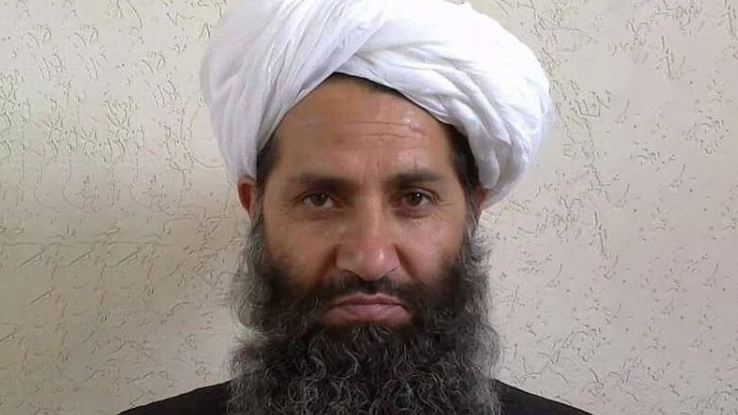KABUL, Afghanistan — Taliban leader Hibatullah Akhundzada has ordered the “punishment” of Taliban members who engage in “linguistic, ethnic, and regional discrimination”, according to Abdul Nafay Takor, the Taliban’s head of assessment at the Ministry of Interior.
Akhundzada emphasized that the punishment of such members should be carried out without delay, he said.
He made this statement during a meeting with Taliban officials in Kabul.
Taliban have not provided details about this visit. However, they mentioned that Akhundzada spoke at a seminar attended by Taliban governors and military commanders at the Ministry of Interior on Thursday, May 16.
“He spoke about issues related to the governors. He emphasized gathering information from those under their command, indicating that governors and issues related to the Ministry of Interior must be followed because everything is related to information,” said Sayed Akbar Agha, a former Taliban member.
A Taliban police commander reiterated Akhundzada’s statements, saying the leader insisted that any discrimination based on Pashto or Farsi languages must be punished.
This comes shortly after Tajik Taliban members criticized the group for linguistic and ethnic discrimination in video messages, threatening to break away from the Taliban.
Additionally, some Taliban officials reported that Akhundzada instructed members not to interfere in each other’s work to prevent internal conflicts.
Previously, the UN Secretary-General had highlighted increasing divisions within the Taliban leadership.
Akhundzada warned that injustice and oppression would lead to the collapse of Taliban rule.
He also advised Taliban officials to learn from the mistakes of previous governments in Afghanistan.
Critics of Taliban policies argue that their regime is characterized by oppression, particularly against women.
International reports indicate ongoing human rights violations by the Taliban, including the killing of former government members, torture of individuals accused of being part of the resistance, and the detention and suppression of women.
While Kabul is the capital, Kandahar is considered the main power base of the Taliban leader.
The reason for Akhundzada’s visit to Kabul remains unclear, but it comes amid public protests in Badakhshan against perceived oppression and border clashes with Pakistani forces.
Some Kabul residents report that increased security measures have disrupted daily life.
“Everyone goes to work. There are a lot of roadblocks and searches. The intense security measures are troubling for people. I don’t know why it is happening,” said Siyar, a Kabul resident.
“Wherever you go, whether it’s Shahr-e Naw or other parts of the city, there’s congestion, roadblocks, and searches. I don’t know why, but these measures make it impossible to get anywhere on time,” Romal, another Kabul resident, added.
During his visit to Kabul, Akhundzada went to the Ministry of Interior, led by Sirajuddin Haqqani.
It is unclear why he did not visit the Taliban-controlled presidential palace. The Taliban spokesperson has not commented on the visit or any other agendas Akhundzada might have.





